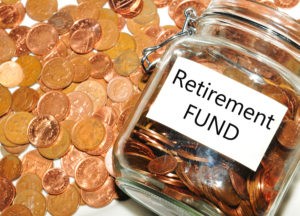Making End of Life Decisions Part of your Estate Plan

If your end of life decisions are important to you, there are a handful of documents that are typically created during the process of developing an estate plan that can be used to achieve this goal, says the article “Choosing a natural end” from The Dallas Morning News.
The four documents are the Medical Power of Attorney, the Directive to Physicians, the Out-of-Hospital Do-Not-Resuscitate, and the In-Hospital Do-Not-Resuscitate. Note that every state has slightly different estate planning laws. Therefore, you will want to speak with an experienced estate planning attorney in your state. If you spend a lot of time in another state, you may need to have a duplicate set of documents created. Your estate planning attorney will be able to help. In Texas, attorneys often prepare the Medical Power of Attorney and Directive to Physicians, and Do-Not-Resuscitate Orders are prepared by medical systems. See Mary’s excellent blog for further background https://galligan-law.com/living-wills-and-medical-powers-of-attorney-why-they-are-important/.
For the Medical Power of Attorney, you are appointing an agent to make health care decisions if you cannot. This may include turning off any life-support systems, refusing life-sustaining treatment and other end of life decisions. Talk with the person you want to take on this role and make sure they understand your wishes and are willing and able to carry them out. You have the right to change your agent at any time.
The Directive to Physicians, which is basically the Living Will of Texas, is a way for you to let physicians know what you want for comfort care and any life-sustaining treatment in the event you receive a diagnosis of a terminal or irreversible health condition. You aren’t required to have this, but it is a good way to convey your wishes. The directive does not always have to be the one created by the facility where you are being treated, and it may be customized to your wishes, as long as they are within the bounds of law. Many people will execute a basic directive with their estate planning documents, and then have a more detailed directive created when they have a health crisis. It and the Medical Power of Attorney serve to nominate and provide guidance to your healthcare decision-maker on end of life decisions.
The Do-Not-Resuscitate (DNR) forms come in two different forms in most states. Unlike the Directive to Physicians, the DNR must be signed by your attending physician. The Out-of-Hospital DNR is a legally binding order that documents your wishes to health care professionals acting outside of a hospital setting not to initiate or continue CPR, advanced airway management, artificial ventilation, defibrillation or transcutaneous cardiac pacing. You need to sign this form, but if you are not competent to do so, a proxy or health care agent can sign it.
The In-Hospital DNR instructs a health care professional not to attempt CPR, if your breathing or heart stops. It is issued in a health care facility or hospital and does not require your signature. However, the physician does have to inform you or make a good faith effort to inform a proxy or agent of the order.
If you have specific wishes for your end of life decisions, especially if you want a natural end, speak with your estate planning attorney about how to legally prepare to protect your wishes.
Reference: The Dallas Morning News (Jan. 12, 2020) “Choosing a natural end”

